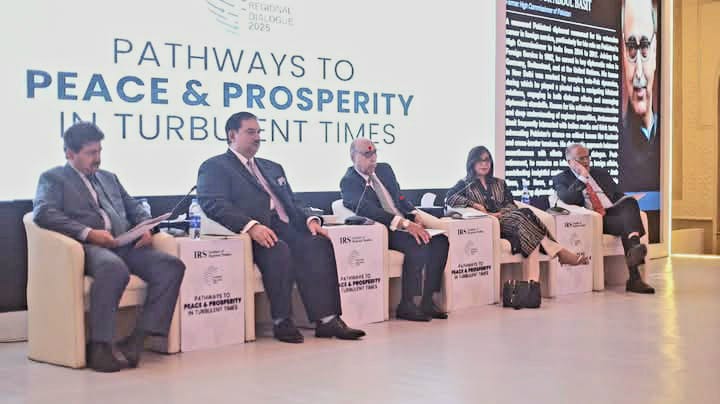ISLAMABAD ( WNAM REPORT ): At a Regional Dialogue 2025, hosted by the Institute of Regional Studies (IRS), former Defence Minister Engr. Khurram Dastgir warned about the potential escalation between the two nuclear powers. His warning came at a time when two nuclear powers were engaged in a military conflict following the tragic event of Pahalgam.
Ambassador Abdul Basit, the former High Commissioner to India, emphasized that regional connectivity cannot be realized unless conflicting bilateral issues, especially those with India, are addressed. He called for a thorough and honest analysis of Indian strategic thinking to help create realistic and forward-looking policy responses. Highlighting the Kashmir dispute, he warned that the issue is becoming increasingly complex and continues to threaten regional peace and stability.
Veteran journalist and DAWN anchor Ms. Arifa Noor noted that Pakistan’s approach towards India has often been tactical rather than strategic. She argued that India’s anti-Pakistan rhetoric is rooted in broader anti-Muslim narratives. She also criticized Pakistan’s media landscape for failing to create space for active foreign policy debates and for not engaging Indian critics of the Modi government, which weakens Pakistan’s counter-narrative.
Senator Javed Jabbar, a former Information Minister, emphasized the significant role of the Indian military in shaping New Delhi’s foreign policy. He warned that “no diplomatic overture or troop movement occurs without military approval.” Defending Track-II diplomacy, he stated, “It is not a betrayal; it is a patriotic platform where dedicated nationalists engage to prevent conflict and preserve dialogue.” However, he also asserted that the “virus of Hindutva has infected the Indian psyche,” and even if the Congress party were to win, he believes there wouldn’t be much change.
Mr. Hamid Mir, a senior anchorperson at GEO News, rejected the approach of track two diplomacy with India, calling it a deceptive strategy. He argued that Pakistan’s survival, rather than just the issue of Kashmir, is central to India’s long-term strategic posture, which he linked to the ideological pursuit of ‘Akhand Bharat.’ Mr. Hamid emphasized that all policies toward India should be based on constitutional principles and supported by full parliamentary consensus.
Panelists concluded that a shift in Pakistan’s foreign policy from reactive to proactive was essential, highlighting the need for closer alignment among policymakers, media, and civil society to protect national sovereignty, ensure regional stability, and enhance international credibility.
14


